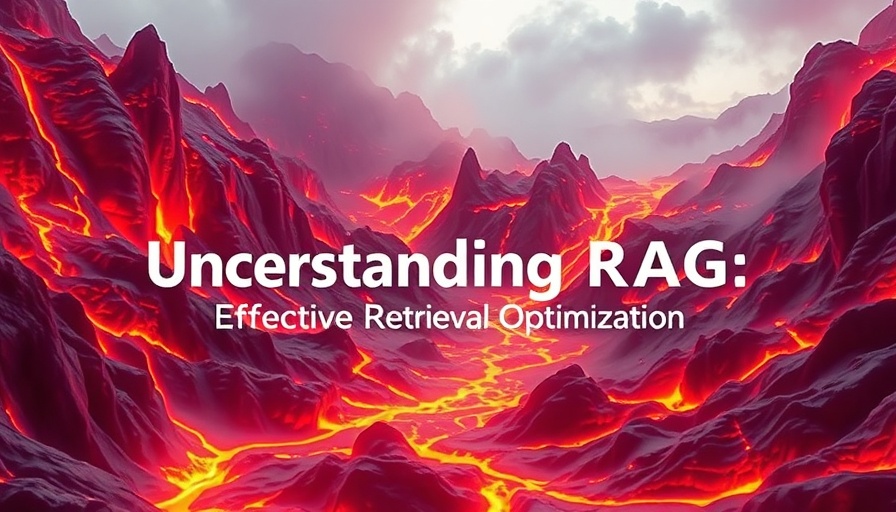
The Imperative of Optimizing Retrieval-Augmented Generation
In today's fast-paced digital world, executives and businesses are constantly seeking efficient mechanisms to harness vast amounts of knowledge and optimize operations. One essential innovation driving this progress is Retrieval-Augmented Generation (RAG), a hybrid framework that integrates retrieval processes with language models to enhance the relevance and accuracy of generated content. Understanding how to optimize retrieval in RAG systems is critical for organizations looking to thrive in a competitive landscape.
Challenges Facing RAG Systems
At the core of RAG's functionality is the retriever, a component tasked with sourcing the most relevant information from potentially expansive knowledge bases. The effectiveness of the retriever in identifying pertinent context is just as crucial as the language model’s capacity to generate coherent responses. Challenges such as context irrelevance, information overload, and the potential for inaccuracies compound the complexities of RAG systems. These obstacles necessitate a focused approach to improve retrieval processes.
Strategies for Enhanced Retrieval: A Multi-Faceted Approach
Recognizing the significance of retrieval, this article delves into a range of strategies designed to enhance RAG system performance. Successful optimization methodologies often employ:
- Hybrid Search and Reranking: Combining sparse retrieval methods, such as TF-IDF for precise term matching, with dense retrieval techniques that leverage numerical embeddings for semantic similarity maximizes relevancy in document selection. Reranking algorithms further refine these results, prioritizing documents that align closely with user queries.
- Query Transformations: This technique involves modifying or expanding queries through synonyms or rephrasing, allowing the retriever to consider a broader set of documents and enhancing the odds of unearthing high-quality context.
- Contextual Relevance Filtering: Implementing filters based on contextual metadata ensures that the retrieved content aligns with the user's intent and remains relevant to their specific context, ultimately boosting the quality of responses.
Advanced Techniques for High-Stakes Scenarios
While the aforementioned methods lay a strong foundation, organizations operating in high-stakes environments may benefit from specialized strategies:
- Case-Specific Optimization: Tailoring retrieval methods for specific domains can significantly improve relevance. This often entails fine-tuning with domain-specialized data to adjust the weighting and ranking of terms pertinent to the field.
- Active Learning with Feedback Loops: Integrating user feedback into the retrieval process fosters continual improvements, allowing the system to evolve alongside changing preferences and needs.
- Semantic Hashing: This technique focuses on improving retrieval efficiency by encoding documents into compact hash codes, enabling rapid assessments of similarity.
The Future of RAG in Digital Transformation
The realm of retrieval-augmented generation is poised to play a pivotal role in the ongoing digital transformation across industries. Implementing optimized retrieval processes aligns well with the evolving needs of businesses aiming to access, synthesize, and leverage information efficiently. With the onset of advanced RAG frameworks and constant innovation, organizations can navigate the complexities of knowledge management more effectively than ever.
Conclusion: Embracing RAG for Competitive Edge
Optimizing retrieval in RAG systems is not merely an academic pursuit but a vital strategy for businesses seeking to bolster their operations and responses to user queries. By embracing sophisticated retrieval techniques and staying informed on emerging trends within the RAG landscape, executives can facilitate their organizations’ growth and innovation.
Acting on these insights could serve as a game changer, positioning your organization at the forefront of digital transformation efforts. The time to adapt and optimize is now—integrate RAG into your strategies for success.
 Add Row
Add Row  Add
Add 

 Add Row
Add Row  Add Element
Add Element 




Write A Comment